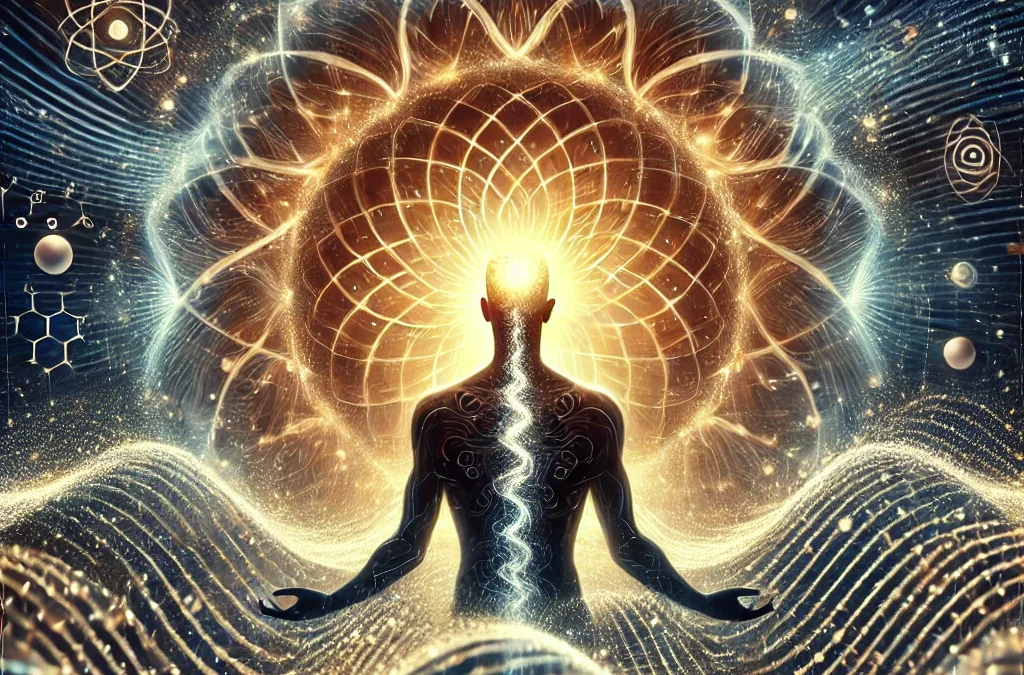Quantum Consciousness by Dr. Stephen Wolinsky
Dr. Stephen Wolinsky’s Quantum Consciousness is a groundbreaking work that brings together two seemingly distant fields—quantum physics and psychology—to offer a fresh, transformative perspective on the nature of consciousness and the human mind. The book delves deeply into the ways in which modern physics, particularly the principles of quantum mechanics, provide a new lens through which we can understand not only the universe but also our own mental and emotional processes.
This book is a call to reexamine the foundations of psychology and spirituality by exploring the parallels between quantum theory and the inner workings of the mind. Wolinsky argues that, just as physicists seek a Theory of Everything (TOE) to explain the universe, we must also seek a Psychology of Everything (POE) to truly understand the mind and human behavior.
A Bold Synthesis of Science and Consciousness
At the heart of Quantum Consciousness is the idea that quantum mechanics, which governs the behavior of subatomic particles, can be applied to our understanding of consciousness and the psyche. Wolinsky makes compelling connections between quantum phenomena like superposition, entanglement, and the observer effect and the workings of the mind.
One of the central concepts Wolinsky explores is the idea that, like particles in a state of superposition, our thoughts and emotions can exist in multiple potential states until we bring conscious awareness to them. This notion challenges the deterministic view of psychology that sees individuals as victims of their past experiences or genetic makeup. Instead, Wolinsky offers a more fluid, dynamic model of consciousness, where perception and self-awareness play crucial roles in shaping our reality.
Key Insights from the Book
- The Mind as a Quantum System: Wolinsky suggests that the human mind functions in ways that mirror quantum systems, where non-linearity, uncertainty, and interconnectedness are fundamental. The brain, much like quantum particles, can hold multiple potential states—thoughts, emotions, and perceptions—at once. Through mindfulness and self-observation, we can “collapse” these possibilities into chosen realities, much like quantum particles collapse into a definite state when observed.
- The Observer Effect in Psychology: One of the most profound insights in the book is Wolinsky’s application of the observer effect from quantum mechanics to the field of psychology. In quantum physics, the act of observing a particle changes its behavior, and Wolinsky argues that this principle also applies to our thoughts and emotions. By bringing conscious awareness to our inner experiences without judgment, we can actively reshape our mental and emotional states. This idea has far-reaching implications for mindfulness practices, therapy, and emotional healing.
- Quantum Consciousness and Enlightenment: Wolinsky’s exploration of spirituality is another highlight of the book. He argues that enlightenment—the state of pure awareness often described in Eastern traditions like Zen and Advaita Vedanta—can be understood through the lens of quantum theory. In this state, the individual transcends the ego, much like how quantum particles exist in a state of oneness before observation separates them into distinct entities. The idea that our consciousness is inherently interconnected with the universe is a powerful insight that resonates deeply with both spiritual seekers and those interested in the metaphysical implications of quantum theory.
Strengths of the Book
- Interdisciplinary Approach: Wolinsky’s ability to bridge the gap between modern physics and psychology is one of the book’s greatest strengths. He makes quantum mechanics accessible to the lay reader while also providing a fresh perspective on the nature of consciousness. This interdisciplinary approach enriches both fields and opens up new possibilities for personal and collective growth.
- Practical Applications: While Quantum Consciousness is deeply theoretical, Wolinsky also offers practical applications for those seeking to apply these insights to their own lives. The book’s discussions on mindfulness, self-observation, and emotional regulation are grounded in real-world practices that readers can use to enhance their self-awareness and mental well-being.
- Challenging Conventional Psychology: One of the most intriguing aspects of the book is its challenge to the traditional models of psychology that view the mind in mechanistic terms. Wolinsky offers a more holistic and dynamic view of the psyche, where change is not only possible but an inherent part of the human experience. This perspective is refreshing and offers hope to individuals seeking to break free from limiting beliefs or emotional patterns.
Challenges and Limitations
While Quantum Consciousness is undoubtedly thought-provoking, some readers may find the book’s synthesis of quantum theory and psychology difficult to grasp. The abstract nature of quantum mechanics can be challenging, and applying these concepts to the mind and consciousness requires a willingness to think beyond traditional frameworks.
Additionally, some may feel that Wolinsky’s approach leans heavily toward the metaphysical and spiritual, which could be a barrier for readers looking for more concrete scientific explanations. However, for those open to exploring the intersection of science and spirituality, this book offers a rich and rewarding experience.
Conclusion: A Transformative Journey into the Quantum Mind
Quantum Consciousness by Dr. Stephen Wolinsky is a bold and innovative exploration of the human mind, consciousness, and the nature of reality. By blending the insights of quantum mechanics with psychology and spirituality, Wolinsky challenges readers to rethink their understanding of themselves and the universe. The book serves as both an intellectual journey and a practical guide for those seeking to expand their self-awareness, cultivate mindfulness, and embrace the infinite possibilities that life offers.
For anyone interested in the deeper mysteries of consciousness, personal growth, and the profound connections between science and spirituality, Quantum Consciousness is a must-read. It is a book that will leave you contemplating the nature of reality and your place within it, long after you’ve turned the final page.

